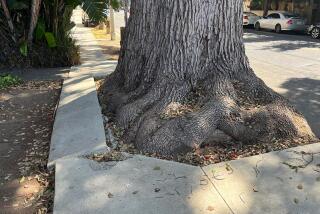Lawndale Drops Plan for 1-Way Streets
- Share via
Blasted by complaints from residents, the Lawndale City Council last week rescinded its plan to make five streets one-way for a three-month trial period and instead has called for public hearings on the city’s traffic and parking problems.
In another measure aimed at satisfying critics, the council abandoned its “blue card” system in which residents were asked to write their names and addresses on cards to let the city clerk know what issue they wished to discuss.
Petitions Presented
An outspoken cadre of residents opposed the cards as an infringement of free speech, while city officials said the practice helps them conduct meetings in an orderly fashion.
Both actions came less than a week before Tuesday’s municipal election, in which all five council members are seeking new terms.
Irate residents, headed by Steve Mino, presented the council with petitions bearing 75 signatures against the plan for one-way streets. He also submitted a petition with the signatures of four residents favoring the plan.
The council on March 17 had granted preliminary approval for a trial use of one-way streets to create 190 parking spaces and ease the city’s chronic parking shortage. The plan designated as one-way streets certain segments of Firmona and Grevillea avenues and portions of 159th, 169th and 168th streets.
Mino and his backers urged the council to reject the plan because they said it would create safety problems and confusion.
The council voted 4 to 1 to rescind the plan, with Councilman Terry Birdsall dissenting because he said the city needs to try something to improve traffic and parking.
The council agreed to hold public hearings on the city’s parking and traffic problems, but no dates were set.
The council also bowed to another of Mino’s demands, presented in a caustic speech lasting more than 20 minutes, when it dropped its blue card requirement for those wanting to address the council.
Mino claimed the cards were used to limit free speech and control public comment.
Free-for-All
City officials said the cards were not intended to limit public comment. They defended the use of the cards as being common practice among public bodies to help assure the orderly conduct of public sessions. The cards, which are used to call speakers to the podium, also help the city clerk keep more accurate records, the officials said.
After the cards were voted out, 4 to 1, with Birdsall dissenting, the meeting became a free-for-all, with members of the audience interjecting questions and comments on issues. The council session lasted more than five hours, ending about 12:30 a.m.
More to Read
Sign up for Essential California
The most important California stories and recommendations in your inbox every morning.
You may occasionally receive promotional content from the Los Angeles Times.










